How to start knowledge building and Knowledge Forum?
From Teacher-Designed Questions to Student-Generated Questions
Page Outline
Questions for Inquiry- Students’ questions based on classroom discussion
- Students’ questions based on metacognition
- Students’ questions based on readings
- Students’ questions based on field trip
- Students’ interest and incentives
- KF skills
- Build-on
- Feedbacks
Questions for inquiry
1. Students’ questions based on classroom discussion
In phase one, students should have generated some worth-inquiring questions during classroom discussion. In phase two, students should adopt these questions and post them onto the Knowledge Forum for online discussion. This method provides a good linkage between phase one and phase two. The following some examples of student-generated questions based on classroom discussions.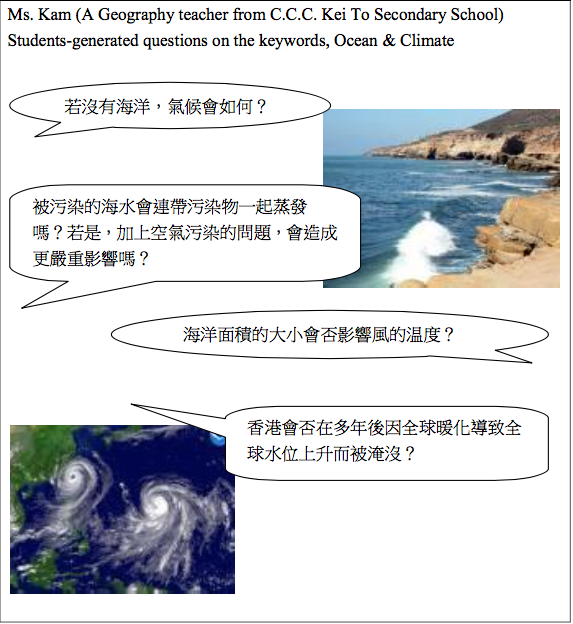
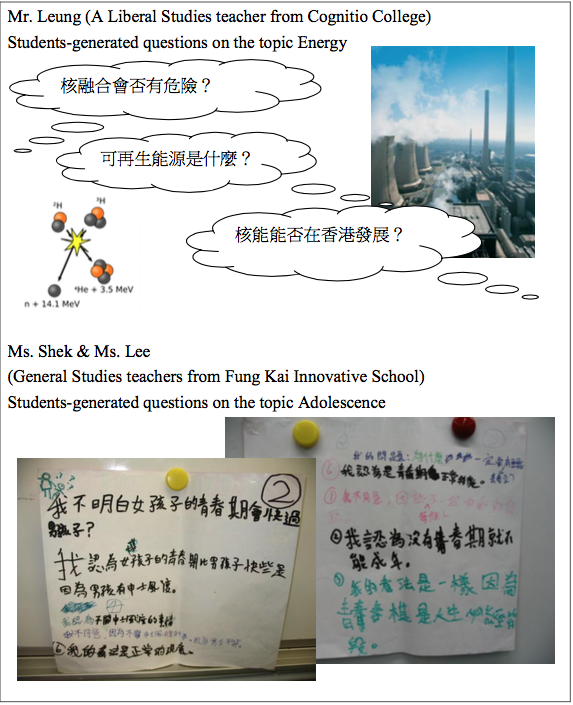
The essence of Knowledge Building is to allow students to direct their own learning. Therefore, instead of answering teacher’s questions, students are to ask their own questions and try to find out the answers, thereby construct knowledge and understanding through the collaborative efforts of their KB community.
2. Students’ questions based on metacognition
Specific and content-based questions restrict students’ independent thinking. To facilitate students’ meta-cognition, broader questions such as ‘What do you know about this topic?’ and ‘What do you want to find out more on this topic?’ are more appropriate.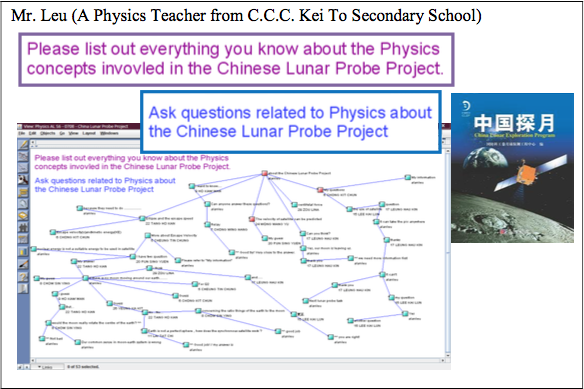
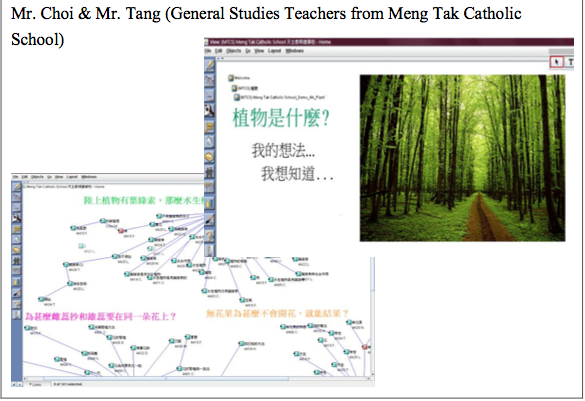
3. Students’ questions based on readings
Sometimes students can be inspired through reading of books, newspaper articles, research report, poems or other written materials (used in phase one). Of course, materials of other modes, such as video, movie, comics, sound clips etc. can also be good stimuli.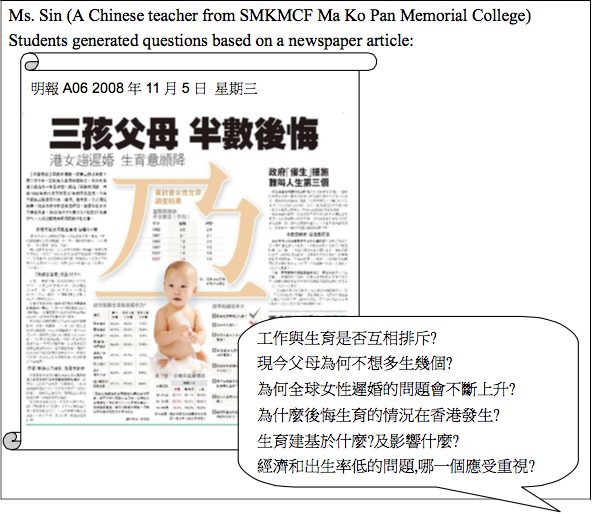
4. Students’ questions based on field trip
Firsthand experience such as experience in field trips, visits and workshops give students wonderful opportunities to discover and explore authentic problems.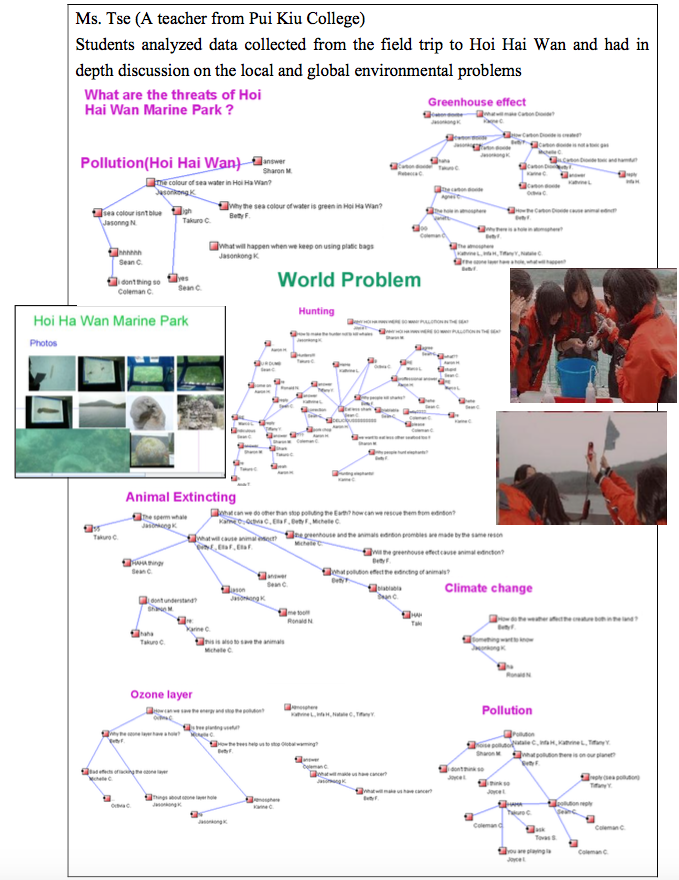
Tips for Encouraging and Facilitating Students’ Knowledge Building on KF
1. Students’ interest and incentives
a. Make sure students are interested in the discussion topic, this can be done by- Letting students decide their own discussion topic and questions
- Finding out interesting, controversial, puzzling and daily-life-related issues to introduce 'boring' topics required by the curriculum
- Tolerate minor mistakes to avoid dampening students’ incentive; students can learn from trial and errors
- Allow students to question against the topic for discussion and encourage them to make refinements to the topic or explore new directions for inquiry
2. KF skills
Help students to acquire the specific KF skills that support better knowledge building, they include:- a. Writing clear and meaningful note title
- b. Using scaffolds appropriately
- c. Adding references (to cite other students’ notes, to add attachments)
- d. Setting keywords, etc.
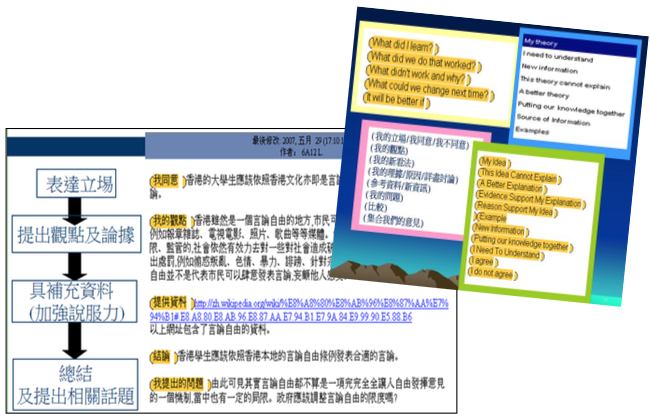
3. Build-on
Encourage students to Build-on others’ ideas- Explain to students, ‘Build-on' is just like “Listening and talking to your friends!”’
- Remind students, ‘KF is not for Q&A or assignment writings!’
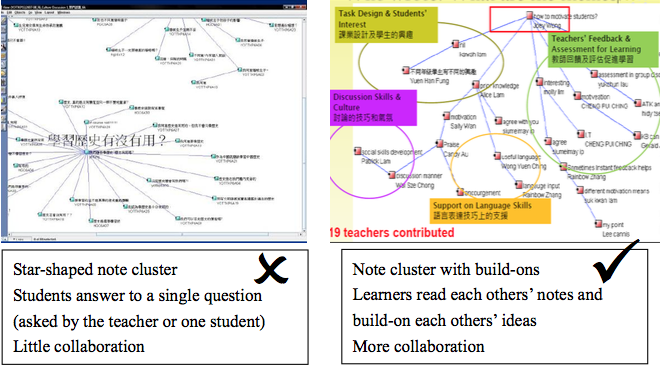
4. Feedbacks
In the lesson, use around 10 minutes to have brief review on KF work by- Praising the few students who have written notes on KF for their effort and show their notes to the class and ask students to comment on the good notes
- Increasing social dynamics by inviting students to give feedbacks or make queries on the notes written and inviting note authors to respond
- Probing students to discuss whether they agree or disagree to what were said and explain their standpoints
- Challenging students with some critical questions to spark students’ interest in exploring new perspectives and reflecting on their existing ideas (DO NOT give direct answers or corrections)
- Providing suggestions on useful resources which can support their ideas
- At last, remind students to post their new ideas and queries onto KF and continue their discussion